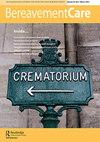‘Doing the same puzzle over and over again’: a qualitative analysis of feeling stuck in grief.
Q3 Nursing
引用次数: 1
Abstract
2022 has witnessed a crescendo of controversial debate in grief and bereavement research, surrounding the inclusion of Prolonged Grief Disorder (PGD) in the revised Diagnostic and Statistical Manual of Mental Disorders, Fifth Edition (DSM-V-TR). Criticisms of the inclusion of PGD focus on the potential for diagnosis narrowing the range of healthy functioning and any treatment gains associated with a PGD diagnosis being outweighed by the risk of pathologising individual differences and diversity in human behaviour (Ben-Zeev, Young & Corrigan, 2010). This qualitative research approaches ‘stuckness’ in grief from a non-pathologising, inductive and curious position that embodies the core, humanistic values of Counselling Psychology (Cooper, 2009). Four participants who reported feeling stuck in grief were interviewed and the resultant transcripts were analysed using Interpretative Phenomenological Analysis (IPA). The four superordinate themes: (‘Eclipsed by the deceased’; ‘The power in powerlessness’; ‘The double-edged sword of coping behaviours’ and ‘Living in Purgatory’) reveal novel insights into the significance and consequences of living with unresolved dilemmas of grieving. Findings support a meaning reconstruction approach to grief therapy and highlight the negative implications of holding a pathologising, time-limited, stage-based conceptualisation of grief. Implications for practice include combining person-centred therapy with targeted cognitive-behavioral grief interventions.“一遍又一遍地做同样的谜题”:对陷入悲伤的感觉进行定性分析。
2022年,围绕将延长悲伤障碍(PGD)纳入修订后的《精神疾病诊断与统计手册》第五版(DSM-V-TR),悲伤和丧亲研究中的争议性辩论达到高潮。对纳入PGD的批评集中在诊断可能缩小健康功能的范围和与PGD诊断相关的任何治疗收益被病理化个体差异和人类行为多样性的风险所抵消(Ben-Zeev, Young &;科里根,2010)。这种定性研究从一种非病态、归纳和好奇的立场来看待悲伤中的“停滞”,这体现了咨询心理学的核心人文价值(Cooper, 2009)。研究人员采访了4名被困在悲伤中的参与者,并使用解释现象学分析(IPA)对结果进行了分析。四个最高的主题:(“被死者遮蔽”;“无能为力中的力量”;“应对行为的双刃剑”和“生活在炼狱”)揭示了生活在未解决的悲伤困境中的意义和后果的新颖见解。研究结果支持悲伤治疗的意义重建方法,并强调了将悲伤概念化为病理性的、有时间限制的、基于阶段的消极影响。实践的意义包括将以人为本的治疗与有针对性的认知行为悲伤干预相结合。
本文章由计算机程序翻译,如有差异,请以英文原文为准。
求助全文
约1分钟内获得全文
求助全文

 求助内容:
求助内容: 应助结果提醒方式:
应助结果提醒方式:


